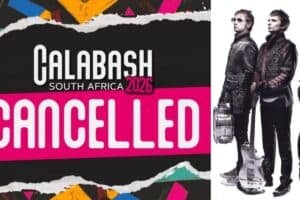This year’s Folklore festival is celebrating 30 years of democracy, over 30 days in three cities- Tshwane, Johannesburg and Cape Town.

In 1846 British writer William John Thoms was reportedly the first person to use the term ‘folklore’ in London Magazine, Atheneum.
Since then, 22 August has been declared World Folklore Day. More than 50 years ago the United Nations Educational, Scientific and Cultural Organization (UNESCO) declared a global celebration day for folklore.
On this date, homage is paid to the different artistic and cultural expressions of peoples from around the world, without exception, on the designated World Folklore Day.
Folk in South Africa
In South Africa, there’s a festival of the same name that kicked off in early August and will run for 30 days.
“Everyone keeps asking me what folklore is and people use the word incorrectly. They describe music as a genre of folklore, but the whole point of the folklore festival is to try and educate each other to be holders and archivists of our stories,” averred Folklore fest founder and Director Pilani Bubu.
“Basically folklore happens when you transfer the stories to someone else through an oral tradition, so as long as you have all decided that this needs to be passed on. It is important, it is folklore, whether it’s a joke, a proverb or a tale.”
The festival is taking place for a third year. Previous editions were hosted in a single day, but this, year the Folklore festival is celebrating 30 years of democracy, over 30 days in three cities- Tshwane, Johannesburg and Cape Town.
ALSO READ: Folklore Festival kicks off at Black Labone’s Earthday celebrations at State Theatre
A cultural heritage festival
At its core, the Folklore festival emphasises storytelling, intergenerational dialogue, and showcasing indigenous knowledge systems through various art forms such as music, poetry, literature, and dance.
The festival’s goal for this year is to build and grow the folklore community by creating intimate bonding moments within that community.
As part of the festival, there was a screening of the theatre play Re-membering IGAMA? by multi-hyphenated storyteller Slindile Mthembu at the National School of the Arts (NSA) where jazz musician Siya Makuzeni performed Dalisu Ndlazi.
“There are so many artists and storytellers who have created works, written books, have poetry (spoken word), made music, created plays and in order to talk about each other and ourselves and find each other in ways we’re navigating our identity, our culture and our heritage.”
“The Folklore fest is a cultural heritage festival. But this year we wanted to expand into understanding what that means within this context and I think this is a pertinent year,” said Bubu at the launch of the festival.
Later in September, there will be a music festival at Constitution Hill’s Women’s Jail with a line-up of musicians, authors, spoken word artists, poets, and storytellers.
The artist line-up includes Amanda Black, veteran multi-faceted musical anthropologist Dr Madala Kunene, singer-songwriter Maleh, Sibusile Xaba and many other artists.
The line-up also includes celebrated author and storyteller Dr Gcina Mhlophe.
NOW READ: Black Labone: Pretoria’s abode for artists celebrates six years






